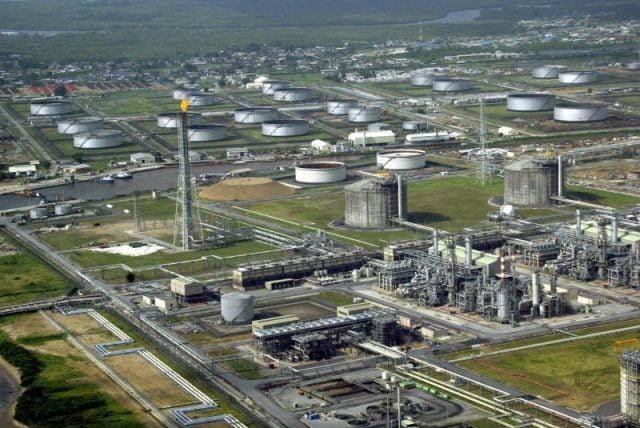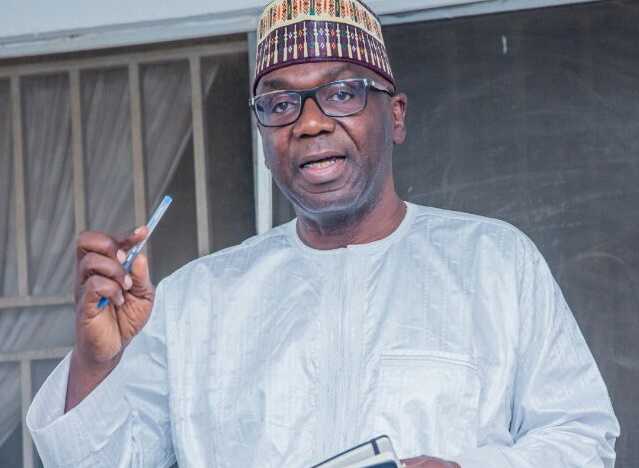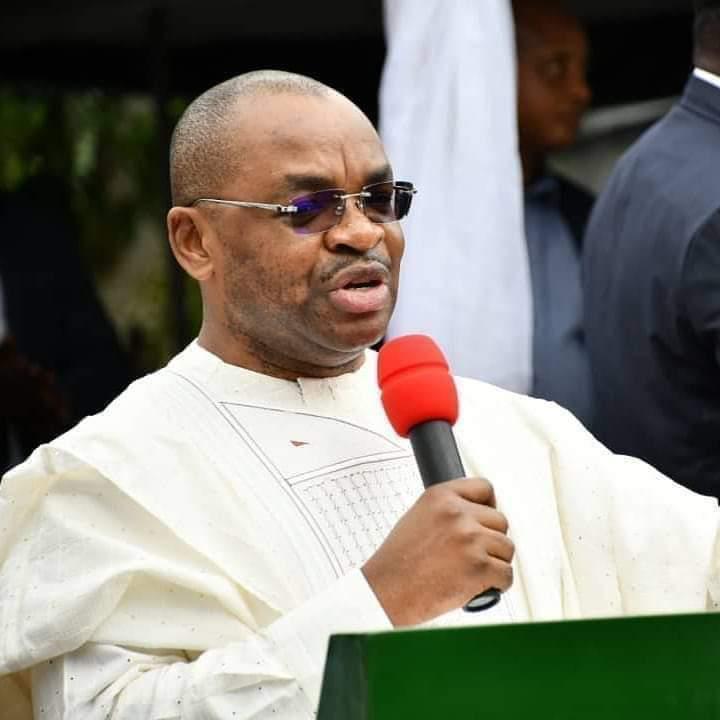The global economy is in the throes of recession. This is largely occasioned by the unpredicted outbreak of COVID-19 and the severe restrictions the pandemic imposed on economic activities. Against this backdrop, Nigeria has an opportunity to wade through this precarious period by unleashing its vast natural gas potential.
At the moment, the flag off of the construction of the 614km-long Ajaokuta-Kaduna-Kano (AKK) pipeline, repeated emphasis about the role of gas in bringing Nigeria out of the woods of electricity deficit, as well as increased investment in gas processing and distribution infrastructure confirm that attention is being paid to increasing gas supply in country.
An unfolding gold mine.
In June 2020, the Department of Petroleum Resources (DPR) released two bits of interesting data. One indicated that Nigeria’s crude oil reserves had dipped while the other showed that the country’s gas reserve had grown marginally, thereby reaffirming Nigeria’s status as a global gas powerhouse.
Based on the data released by DPR, Nigeria’s total gas reserve stood at 203.16 trillion cubic feet (TCF) as at January 1, 2020, representing a marginal increase of 1.16tcf (or 0.57%) compared to 202tcf recorded in 2019. The reserve was broken into 100.69tcf of Associated Gas and 102.47tcf of Non-Associated Gas.
Advertisement
On the other hand, crude oil reserves dropped to 36.89 billion barrels, a decline of 82 million barrels (or 0.22%) recorded a year earlier.
These figures confirm the position of Nigeria as the country with the most robust natural gas reserve on the African continent and the 9th most endowed country in the world in terms of gas. Nigeria therefore has a potential for greater gas output, gas commercialisation and power generation, especially as the backbone of its power sector is in thermal plants constructed in many southern states.
Making the most of gas
Aware of the strategic importance of gas to Nigeria’s economic development, the federal government developed the Nigeria Gas Masterplan in 2008. This was remodeled and replaced with the National Gas Policy in 2017. Among other things, the new plan aims to properly delineate gas related activities between government and the private sector, implement a project-based rather than centrally-planned domestic gas development approach, introduce a model Gas Development Agreements in Production Sharing Contracts while establishing a strong linkage between gas producers and the power sector, agriculture and the real sector.
Advertisement
The overriding objective of the National Gas Policy is to create an enabling environment that will ensure investment in gas infrastructure that guarantee adequate exploitation of the national gas reserve to drive industrialisation and job creations. But a number of unresolved issues have stood in the way. While some of the obstacles are traceable to gaps in policy, others are not. As an instance, given the huge financial commitment of investors to gas infrastructure, product price still does not reflect globally competitive rates. Then there is the issue of paying for gas that has been supplied by producers.
Following the outbreak of Covid-19, the federal government approved the payment of N200billion for the power sector to boost gas supply to electricity generation companies. But that was a modicum of the debt owed to gas suppliers. An equally important challenge is political interference in agreements and contracts that have been signed. A case in point is the Senate Committee investigating the Power Sector which recommended renegotiation of the agreement between the Federal Government and Azura Power as well as the agreement between Niger Delta Power Holding Company (NDPHC) and Accugas, a leading gas producer, for the supply of gas to Calabar NIPP.
So far, Accugas has invested over $2billion in gas infrastructure in Nigeria. At present, the $500million Calabar NIPP, which is owned by NDPHC has only one source of gas supply, which is Accugas. Calabar NIPP generates about 450MW, which by extension means that Accugas’ investment and gas supply guarantees a little over 10% of national electricity supply.
It is important to highlight the fact that NDPHC built the Calabar NIPP without a source of gas supply. Without the Uquo to Creek Town gas pipeline, which Accugas borrowed millions of dollars from local and foreign lenders to construct, the power plant would have been idle.
Over the years, Accugas has met its contractual obligation in terms of efficient supply of gas to the power plant. Indeed, Accugas’ investment is helping Nigeria monetise otherwise flared gas and to support federal government’s gas to power agenda to drive economic development.
Advertisement
Therefore, the Senate Committee’s recommendation needs to be reexamined. As a gas supplier, the take or pay agreement between NDPHC and Accugas means that whenever Calabar NIPP is unable to take its full contracted volume of gas, Accugas records it as gas kept in trust.
By virtue of this, whenever Calabar NIPP is ready to take its full volume of gas, Accugas will deliver what is termed “Make up Gas” which is the difference between contracted volume and actual delivered volume. In essence, Calabar NIPP gets its full volume through make up gas. This is how the take or pay for gas supply works. Besides, this, take or pay is a global contract standard – it is how gas supply contracts are structured when a major capital investment is required.
Furthermore, Accugas first signed an agreement to supply gas to the NDPHC’s Calabar NIPP in 2011. This agreement was renegotiated and restructured in 2014 to meet the eligibility requirements of the World Bank Partial Risk Guarantee (PRG) which helped ensure the bankability of the gas supply project to the Calabar NIPP.
In 2009, the Federal Government and the World Bank agreed a proposal for a series of World Bank PRGs for up to $400 million in support of gas supplies from Shell, Chevron and other companies to the then PHCN under the Nigeria Electricity and Gas Improvement Project (NEGIP).
Advertisement
As part of the World Bank credit enhancement suite of products, PRG has been deployed in several countries and regions around the world with documented success and is therefore not novel to Nigeria.
Beyond the occasional political interference, which is often not based on solid understanding of the sector, the delay in the full passage of the Petroleum Industry Bill has been identified as one of the factors that has hampered development in the gas sector of the oil and gas industry. But that does not mean progress has not been made in the last two decades.
Resilience in a challenging environment
Over the last 20-30 years, the level of underinvestment in the gas to power sector has been estimated at $50-100billion in part due to commercial, infrastructure and regulatory roadblocks in the sector. Until the losses and liquidity issues in the sector are addressed, government intervention and support will be required to facilitate the investment required to plug the shortfall in the sector.
Part of the laudable support provided to the federal government in this regard from the World Bank and other multilateral institutions is the PRG.
Advertisement
To bankroll large infrastructure though external financing, investors demand guarantees to hedge against vagaries associated with poor collection of returns and outright disregard for agreements. This support from the World Bank has resulted in over $3billion of investment in gas and power generation. In the long run if the power sector reform succeed Nigerians will be better for it.
According to Shubham Chaudhuri, World Bank Country Director for Nigeria, “The lack of reliable power has stifled economic activity and private investment and job creation, which is ultimately what is needed to lift 100 million Nigerians out of poverty.” Nigeria’s policy makers have to do what it takes to guarantee the right level of investment to attain reliable power supply.
Power supply and Economic growth: The nexus
Advertisement
The correlation between gas supply, power supply, and economic growth has been the subject of numerous academic enquires. However, of interest is the conclusion that there is a direct positive correlation between steady power supply and economic growth.
In Nigeria research shows that unreliable and irregular power supply is the most important bottleneck for manufacturers. Therefore, gas offers Nigeria the catalyst to unleash an era of unprecedented growth if it the right steps are taken.
Hydro-electric and thermal power plants are the major sources of power for Nigerian households, factories and offices. According to the Nigeria Electricity System Operator, Nigeria’s installed generation capacity is 12,910.40MW, available capacity is 7,652.60MW, while electricity transmitted is constrained to about 5,000MW due to dilapidated transmission and distribution infrastructures. About 81% of the total national installed capacity to generate power is on thermal power plants (gas-fired plants).
In 2019, the World Bank estimated that the economic cost of power shortages in Nigeria was circa $28 billion an equivalent of 2% of GDP. Also, access to electricity ranks as one of the major constraints for the private sector, according to the World Bank latest Doing Business report.
Advertisement
It is therefore in the interest of the Nigerian people and government to honour agreements and contracts in order to sustain the foreign direct investment (FDI) necessary to unlock the country’s gas potential.





